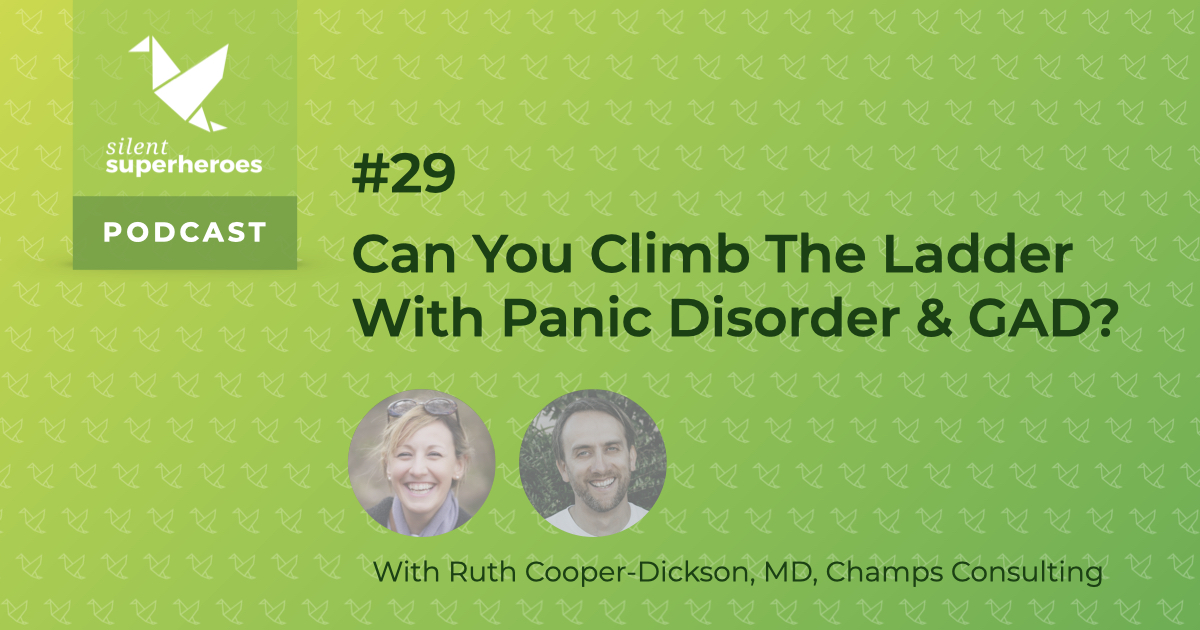Ruth is a successful businesswoman who lived, undiagnosed, with panic disorder and generalized anxiety disorder for 20 years. One day, after a run-of-the-mill setback work, she found herself in her bath, contemplating suicide. The next day, Ruth wondered who the woman was with dead eyes looking back at her. She had to go one more step down the ladder before she was able to connect with a mental health professional and start figuring out the panic disorder and generalized anxiety disorder that had plagued her for 20 years.
Podcast: Play in new window | Download (Duration: 53:07 — 29.0MB)
In this episode of Silent Superheroes, Ruth explains what Panic Disorder and Generalized Anxiety Disorder (GAD) are. She talks about the sequence of events that brought 20 years of panic disorder and GAD to a head. We discuss how workplaces create a self-perpetuating cycle that is hostile to good mental health. And finally Ruth, now the Managing Director of Champs Consulting, leads a business bringing the conversation about mental health and tools to manage it to employers all over the world.
Links
- Champs Consulting, Ruth’s business (business)
About Panic Attacks
A panic attack is a sudden episode of intense fear that triggers severe physical reactions when there is no real danger or apparent cause. Panic attacks can be very frightening. When panic attacks occur, you might think you’re losing control, having a heart attack or even dying.
Many people have just one or two panic attacks in their lifetimes, and the problem goes away, perhaps when a stressful situation ends. But if you’ve had recurrent, unexpected panic attacks and spent long periods in constant fear of another attack, you may have a condition called panic disorder.
Although panic attacks themselves aren’t life-threatening, they can be frightening and significantly affect your quality of life. But treatment can be very effective.
Getting Support
Remember, the people you hear on Silent Superheroes are sharing their opinions about mental health and mental illness. They are not giving advice. For that reason, please consult with your care provider before making a change to your treatment approach.
It’s important to take your mental health seriously. Consequently, if you need to speak to someone you can call 1-800-273-8255, or text crisistextline.org on 741741. Both provide 24×7 confidential counseling to people in the United States. Worldwide visit http://iasp.info/resources/Crisis_Centres/
Because you listened to the podcast, you can help others find it by leaving us a review on iTunes. Or if you don’t use iTunes, leave a review on your favorite podcasting service.


